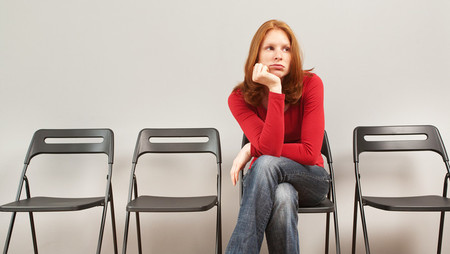The big day has finally arrived: you’re going to interview for the job of your dreams.
You’ve prepared your answers to the most common interview questions, picked out your outfit, styled your hair and are now twiddling your thumbs, waiting for the time to pass. You set off with enough time to spare, to show your impeccable timing skills, but have arrived super early. As you settle into your seat, you start to wonder: ‘Am I too early?’
The answer is probably ‘yes’.
Here, we uncover how early is ‘too early’ and what the ideal time is to show up for your interview, as well as tips to pass the time if you arrive well before you’re scheduled to!
How Early Is Too Early?
Arriving at the office 20-30 minutes early can often be viewed as a plus, as it shows that you are punctual and dedicated to your work. However, showing up this early for a job interview is just as bad as showing up too late.
Joshua Rudd, a consultant at DFP Recruitment, says that it’s simply ‘not beneficial for candidates to arrive 20-30 minutes early for their interview as I’m often not able to accommodate them earlier. This results in a long wait for the candidates which in some cases leads to increased nervousness and a poor interview performance’.
Why Is Arriving Too Early Bad?
Simply put, it can kill any chance you had of bagging the job.
Think about it: you arrive super early, sit in the reception area (which is just a few steps away from your potential colleagues) and make everyone (including yourself) feel awkward because you’ll either all sit there in silence or, worse, you’ll be taking someone away from an important task as they may feel they need to entertain you to try and make things a little less awkward.
Business Insider's director of talent, Stephanie Fogle, says: ‘There is a fine line between showing interest and looking desperate, and you don't want to send the wrong message’.
Hiring managers don’t like making people wait and will either feel obliged to drop everything to meet with you earlier than scheduled or feel anxious that they are making you wait – and this will set a bad tone to the meeting before it’s begun. On the other hand, they could already be in an interview with your competition, and seeing a sharp, well-dressed and confident interviewee walk out of the meeting room can seriously harm your mindset.
What's the Best Time to Arrive?
The ideal time to arrive for an interview is around 5-10 minutes beforehand. This will give you just enough time to inform the receptionist, go the bathroom if needed, gather your thoughts and take a few deep breaths before you meet your interviewer face-to-face. You’ll also have a few minutes to analyse your surroundings and take in the atmosphere and get an idea of the company culture without having to look around aimlessly.
If you’re nervous about travelling to an unfamiliar area, it’s good practice to allow yourself plenty of time to get to the general area beforehand. Prepare to arrive around 20-30 minutes so you have enough time to park, grab a coffee or a bite to eat if needed, and figure out where the entrance to the company is. You could also take a walk around the area to mentally prepare for your interview or read over your notes. This time will also allow for any hiccups and delays that you hadn’t expected.
What Should You Do If You Arrive Too Early?
If you’re super early, you can kill time by:
- Going for a walk: If the weather is on your side, going for a walk before your interview is one of the best ways to wait. It’ll boost your energy and release any stress and tension, effectively making you feel more confident and in control.
- Waiting at a aafé: If you’re an overthinker, sitting at a busy café with distractions can keep you occupied while you’re waiting. Make sure to read over your notes and research the company’s site again. Use this time to be productive.
- Waiting in your car: You could opt to wait in your car and listen to your favourite song or think of something positive that will make you feel good and boost your energy.
What Should You Do If You’re Running Late?
If for some unforeseen circumstance you’ve found yourself running late and rushing to your interview, it’s imperative that you contact the hiring manager and let them know from the get-go. Your first option should be calling them, but if you can’t get hold of them, leaving a voicemail and following up with an email will do the trick. Remember, there’s nothing worse than the hiring manager being told at the time of the interview that you’re running late.
Being on time and in good spirits is vital to making a good impression and setting off on the right foot in your interview. When you walk through the company doors, you need to be calm and prepared in order to give yourself the best chance to succeed.
What are your thoughts on arriving early for an interview? Have you ever had a bad reception after arriving too early? Let us know your experiences in the comments section below…
Need more help and advice preparing for a job interview? Check out our collection of interview tips and tricks!


